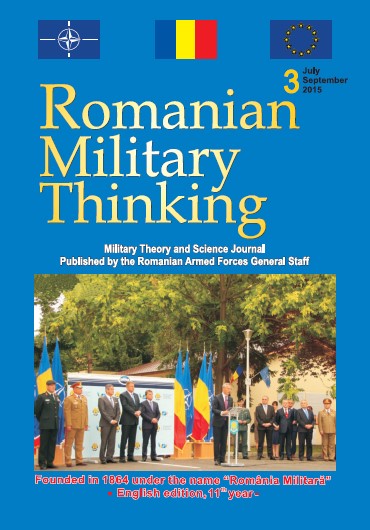THE CHANGE IN THE CHARACTERISTICS OF MODERN ARMED CONFLICTS AND THE IMPLICATIONS FOR THE NATIONAL DEFENCE POLICY
THE CHANGE IN THE CHARACTERISTICS OF MODERN ARMED CONFLICTS AND THE IMPLICATIONS FOR THE NATIONAL DEFENCE POLICY
Author(s): Constantin CIOROBEASubject(s): Security and defense, Military policy, Peace and Conflict Studies
Published by: Centrul tehnic-editorial al armatei
Keywords: hybrid warfare; reflexive control; information operation; new generation warfare; comprehensive approach;
Summary/Abstract: In the modern era a wide range of threats affect the security environment. Under these conditions, it is important to adapt all power structures so that they can respond appropriately to these challenges, especially asymmetrical ones, as it is the case of the conflict between Russia and Ukraine. War and peace have become increasingly mixed, as the conflict entails widely using political, economic, informational, social, media, humanitarian and other non-military measures, supplemented by the instigation of local population and the use of unmarked soldiers. Given that the hybrid war ultimate success, determined by successively meeting the objectives set for each stage and initiating the next stage, depends on the achievement of favourable conditions, it is our primary responsibility to act to prevent enabling conditions.
Journal: Romanian Military Thinking
- Issue Year: 2015
- Issue No: 3
- Page Range: 33-48
- Page Count: 16
- Language: English

